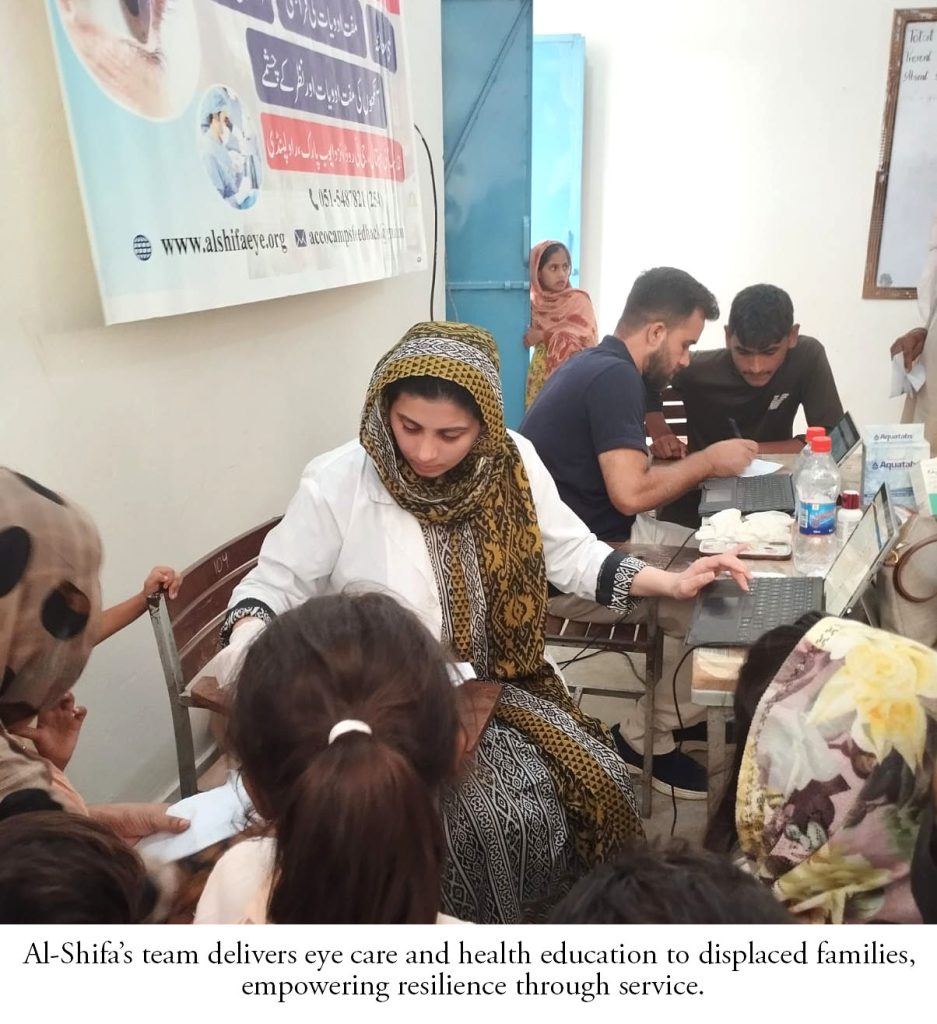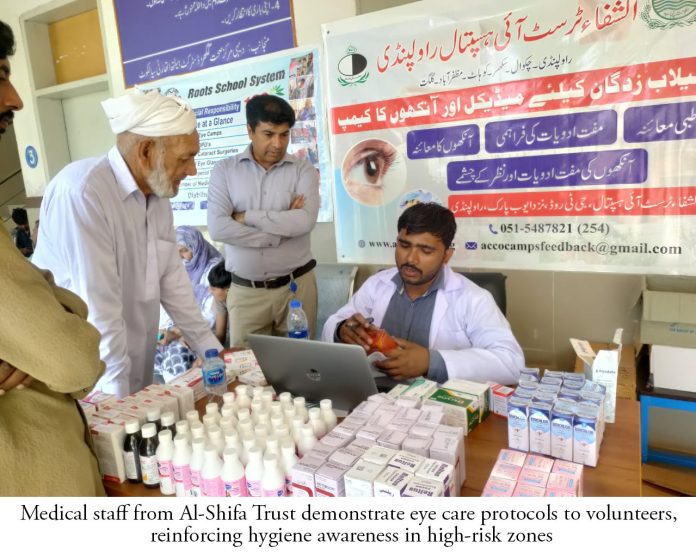RAWALPINDI, SEP 18 (DNA): Al-Shifa Trust Eye Hospital has treated more than fifteen thousand flood victims across Punjab and Khyber Pakhtunkhwa this month, bringing crucial medical assistance to families struggling in the aftermath of Pakistan’s worst floods of 2025.
The Rawalpindi-based charity organised eight emergency medical camps in Swat, Buner, Swabi, Sambrial, Sialkot, Narowal, Wazirabad, and Kasur, where patients lined up for eye checkups, general consultations, and urgent treatment. For many, these camps provided the first medical help since rising waters swept away homes, livestock and health facilities, leaving entire communities stranded without doctors or medicines.
The floods have tragically claimed 900 lives, including 255 innocent children, and disrupted the lives of more than five million people. Families displaced from their homes are spending nights in makeshift shelters, struggling with food shortages and unsafe drinking water. Elderly citizens with chronic diseases and children with infections remain most at risk.

In such dire conditions, President Al-Shifa Trust Maj. Gen. (Retd.) Rehmat Khan decided on an immediate intervention that offered a lifeline to people who cannot afford private medical expenses. Dr Najam, General Manager of Al-Shifa Centre for Community Ophthalmology (ACCO), said the most frequently observed eye diseases in flood-affected areas include allergic conjunctivitis, viral eye infections, keratitis, and various bacterial infections that often result from exposure to contaminated water and poor hygiene practices.
He added that more serious conditions, such as acanthamoeba keratitis and leptospirosis, both potentially linked to water tainted with animal urine, have also been reported. He informed that the trust has distributed over 2,000 prescription eyeglasses, provided eye drops and ointments for various eye infections, and screened over 3,000 patients for diabetes and hypertension. It offered 2,500 food packets and 3,500 water purification tablets. In KPK, more than 5,200 patients benefited from three camps, while five locations in Punjab served close to 9,800 patients.
With its nationwide eye hospital network in Rawalpindi, Chakwal, Kohat, Gilgit, and Muzaffarabad, Al-Shifa Trust is using its resources and expertise to reach communities cut off from specialised care. The trust has plans to scale up mobile clinics, equipped with ophthalmic equipment, medicines, and trained staff, in more affected areas in the coming weeks. The initiative underscores the crucial role that private sector healthcare networks can play in providing timely support in disaster zones.
In addition to medical aid, Al-Shifa Trust is collaborating with local community leaders to raise awareness about preventing waterborne diseases and eye infections. These leaders are instrumental in disseminating educational materials on hygiene and safety, which have been distributed alongside medical supplies to help reduce the outbreak of illnesses. This comprehensive approach aims not only to heal but also to empower communities in rebuilding their health and resilience after the disaster.

















